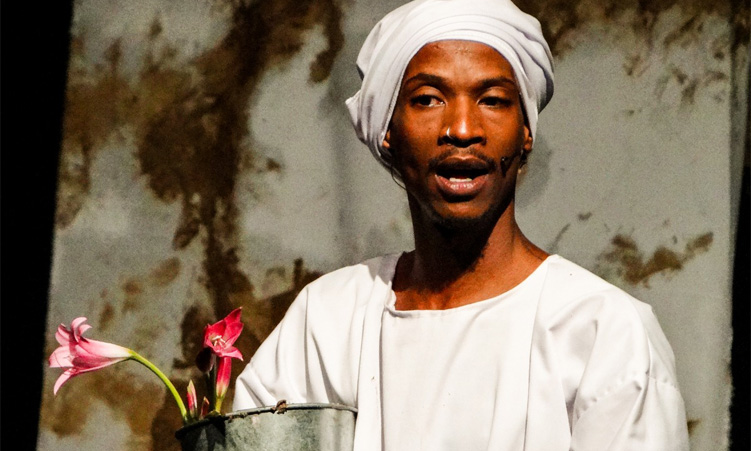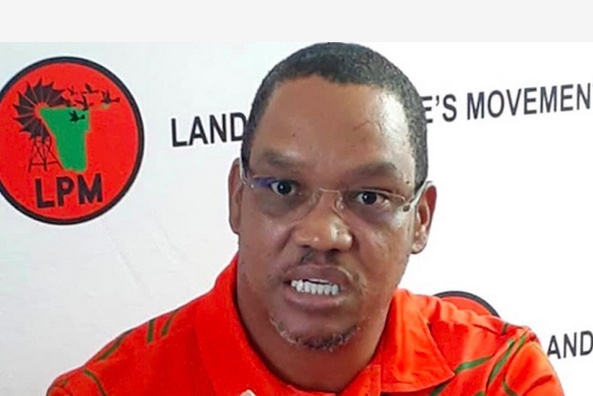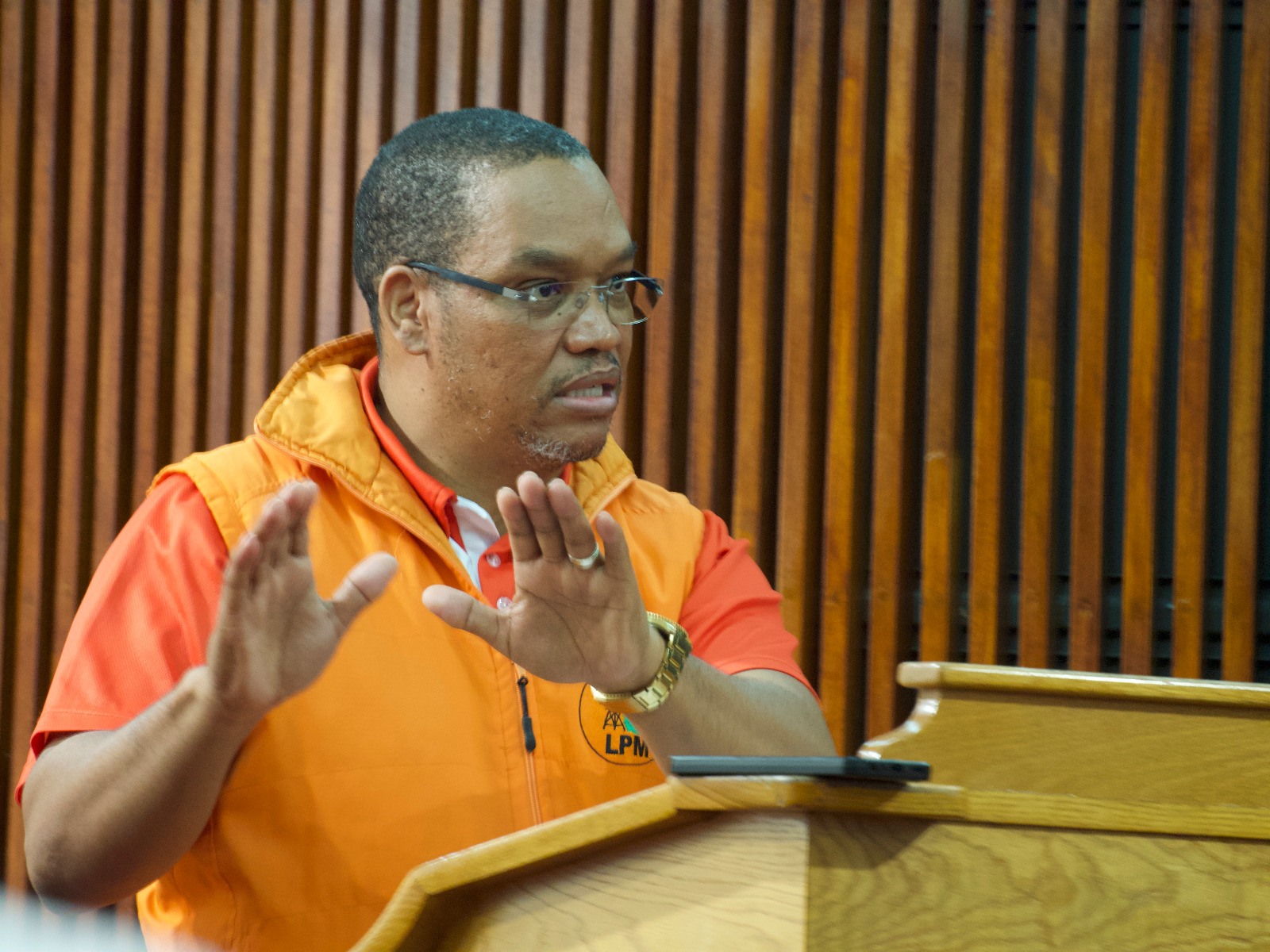The patrons gathered at the National Theatre of Namibia for Keith Vries’ recent premiere of ‘Coming Home Dead’ reach a realm of reckoning through a fog.
The auditorium is thick with it. A shadowy quartet singing a haunting Khoekhoegowab hymn leads us there by lantern light and soon Vries’ voice – spellbinding, sage and witnessing – booms through the haze with a heartfelt welcome.
“And if you don’t remember, let me hold your hand…” says Vries as a prelude to his poetic path that journeys deftly through Namibian history, to the Herero and Nama genocide of 1904, to its beginning, its aftermath, to Shark Island and to the vaults containing the ghastly gatherings of the genocide’s German perpetrators.
Minimalist and delicately directed by Patrick Sam with Monageng ‘Vice’ Motshabi as mentor, ‘Coming Home Dead’ harnesses Vries’ determination to dust off and humanise inadequate records, as well as his complex yet soul-stirring turn of phrase, to create a space that is at once archive, memory, ritual and invitation to healing.
At the centre is Vries himself who emerges from behind a washing line of white linen and through a projection of Hendrik Witbooi, who led the Nama people in resisting German colonial rule and died in action.
Dressed in white robes and a white headwrap, Vries honours the strength and guiding presence of Witbooi and those like him through a prayer from the ‘The Black book of Re-imagination, Insertion and Confrontation’.
Weaving words for grief and displacement, for landlessness, for families torn asunder and casting blood on sanitised history and stolen wealth, Vries is remarkable in his recital of a number of original poems that seem written through a spiritual fever and which demand a listening ear.
Boasting a mellifluous cadence, a knack for metaphor and the ability to resurrect history in lines like “Lebensraum… a sophisticated barbarism that came cloaked as civilisation” while decrying desecration in verses such as “leisurely camping offered and performed among our skulls, clavicles, femurs, screams,” when describing present-day camping at a former concentration camp at Lüderitz, Vries is in a league of his own.
In-between Khoekhoegowab hymns which speak to religion’s role in the colonial project and interwoven amid the poetry, there is ritual.
Engaging with the water from a poem that asks “who did you leave under the sea?” and the mud of ghost towns plundered of their resources, Vries credits Sam’s subtle staging for adding physical manifestations of Vries’ poetry to a scene that builds and ends with the German perpetrators’ bloodied and dirty laundry airing for all to see.
“I’ve been called upon to walk as a living ghost, to live among you and your people. Here to haunt, to remind and reprimand, to reconcile mine, and heal ours,” says Vries in a poem titled ‘But I am Not’.
At the very end of Vries’ vivid, vital and affecting offering, the activist and poet changes from white robes to Nama traditional dress. A walking stick hints at age, wisdom and the endurance of his people, the descendants of a genocide that still has people coming home dead, both literally and metaphorically.
“I want this work to be remembered as a way of our people taking centre stage to tell their own story in their own words,” says Vries. “Besides, it must never just be thought about as a play. We are not show monkeys, we are people seeking justice.”
Stay informed with The Namibian – your source for credible journalism. Get in-depth reporting and opinions for
only N$85 a month. Invest in journalism, invest in democracy –
Subscribe Now!










